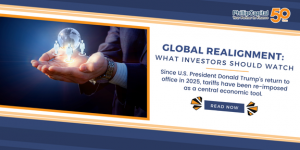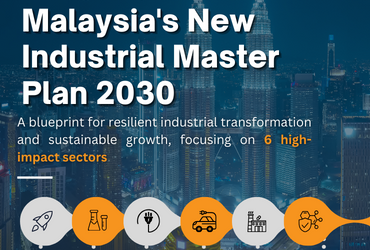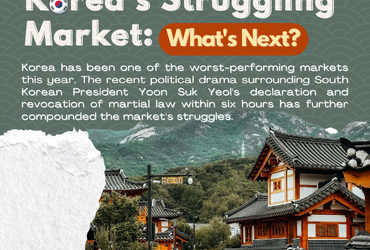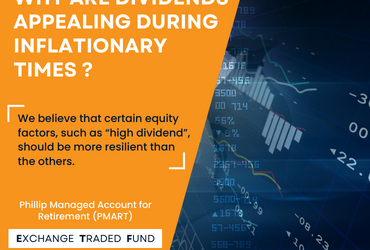
Since U.S. President Donald Trump’s return to office in 2025, tariffs have been re-imposed as a central economic tool. By end-August, the U.S. had already collected about $183 billion in tariff revenue year-to-date — more than double 2024 levels, and far above pre-Trump norms of $35 billion in 2016 and $102 billion in 2022. Trump argues this windfall helps reduce deficits and strengthen America’s negotiating hand. Yet a federal appeals court recently ruled his use of emergency powers for blanket tariffs unlawful, leaving the policy vulnerable to reversal. This episode illustrates both the U.S.’s reliance on unilateral measures and the institutional checks that can constrain them.
While U.S. wrestles with internal legal limits, “rivals” are moving in the opposite direction — forging tighter cross-border alignments. On 1 September 2025, the Shanghai Cooperation Organization (SCO) Summit Plus was held in Tianjin, drawing leaders from China, Russia, India, Iran, and ASEAN. The gathering promoted “sovereign interdependence” and greater cooperation in energy, technology, and security, while urging expanded use of local currencies over the US dollar. Against this backdrop, Malaysia’s Prime Minister Anwar Ibrahim delivered a lecture at Tianjin University and met Chinese corporates, signaling Malaysia’s intent to remain engaged with Asia’s emerging economic frameworks while keeping a neutral stance.
Two days later, on 3 September 2025, China staged a major military parade in Beijing’s Tiananmen Square to mark the 80th anniversary of the end of World War II. President Xi Jinping presided over the event, joined by Russian President Vladimir Putin and North Korean leader Kim Jong Il, underscoring a tighter alignment among these powers. More than 26 foreign leaders attended, including Anwar, reflecting how middle powers are increasingly drawn into the symbolism of China’s expanding influence.
Together, these developments illustrate how the new global order is taking shape: the US doubling down on tariffs and industrial policy, China presenting itself as the anchor of an alternative bloc, and middle economies like Malaysia navigating both sides to maximize economic opportunity. For investors, this environment points to higher volatility as trade and capital flows align more with politics than efficiency.
The challenge is no longer just reading the data—it is factoring geopolitics directly into portfolio positioning. From a portfolio strategy perspective, we have been maintaining a neutral to slightly underweight stance on the US, reflecting the headwinds from tariffs, policy uncertainty, and inflationary pressures. However, the US remains indispensable in technology leadership and dollar liquidity, so a complete underweight would be premature. Conversely, emerging Asia—including ASEAN markets like Malaysia—could warrant an overweight allocation. Not only are they beneficiaries of supply-chain diversification, but they are also increasingly positioned as mediators in the shifting balance of power. Malaysia in particular, with Anwar’s active diplomacy and economic outreach, may serve as a useful case study of how small- to mid-sized economies can leverage great-power competition to their advantage.
Malaysia’s 2Q25 reporting was largely in line with expectations, except for EMS and O&G, which underperformed. Consensus now forecasts KLCI earnings to grow in the mid-single digits in 2025 and 2026. We believe Malaysia offers appealing valuations across PE, PB, and the earnings-MGS yield spread, helping sustain investor optimism. We also believe easing US policy uncertainties, including front-loaded Trump measures and greater clarity on tariffs, along with ample domestic liquidity, provide scope for markets to grind higher into 4Q25 and 2026.
Globally, the US market outlook remains cautiously optimistic into late 2025, supported by resilient consumer spending and easing labour tightness, though inflationary pressures linger. At Jackson Hole, Fed Chair Jerome Powell indicated rate cuts could begin in September, potentially lifting equities, but stretched valuations—highlighted by the Warren Buffett Indicator—warrant caution. In China, August delivered a solid rally as exports and high-tech sectors underpinned growth. Policy signals and supply-side reforms aim to address overcapacity and stabilise profitability, but weak domestic demand and execution risks remain key challenges. We recommend a barbell strategy through 2025, combining quality growth opportunities with defensive income assets to navigate potential volatility.
Phillip Capital Malaysia and our offerings
We reaffirm our belief that there are still opportunities in the market, and we maintain a discerning approach in choosing high-quality stocks for our portfolio. However, it is crucial to exercise caution and carefully select investment options to ensure the best risk-adjusted returns. By taking a vigilant and discerning approach, investors can potentially reap the benefits of the current market opportunities while minimising risks.
A noteworthy avenue for investors seeking diversification in their portfolio is through PhillipCapital Malaysia. PhillipCapital Malaysia offers multiple private mandate services managed by professional fund managers. By leveraging PhillipCapital Malaysia’s private mandate services, investors can enhance their resiliency, optimise portfolio performance, and navigate the complexities of the market with confidence.
We also offer both conventional and Shariah-compliant options to cater to the needs of all investors. For Malaysia’s mandates, we like:
- PMART/PMA Dividend Enhanced and/or PMART/PMA Dividend Enhanced ESG
Our PMART Dividend Enhanced and PMA Dividend Enhanced is an income-driven portfolio focused on high dividend-yielding equities. We apply the Dog of the Dow approach, screen and select top market cap stocks to minimise risk and ensure consistent performance. The portfolio is an equal weighting portfolio which reduces concentration risk and provides similar exposure to all clients, both initially and after rebalancing. We offer both conventional and Shariah investment options to cater to the diverse needs of our investors. Click here to learn more. We recently also introduced PMART/PMA Dividend Enhanced ESG Mandate as we remain dedicated to investing in ESG stocks given their stronger valuation and profitability.
- PMART/PMA ESG
Phillip Capital Malaysia offers discretionary portfolio that invests in stocks with high ESG ratings from the F4GBM and F4GBMS Indices, namely PMART and PMA ESG. There are both conventional and Shariah options available. To explore the companies in which both Conventional and Shariah ESG mandates invest, you can refer to the provided link.
- PMART/PMA Blue Chip and Opportunity
Our Blue-Chip portfolios primarily allocate our investments towards companies with large market capitalisations, while the Opportunity portfolios predominantly invest in companies with smaller market capitalisations. We also offer both conventional and Shariah-compliant options to cater to the needs of all investors.
Please click on the link to learn more or email us at cse.my@phillipcapital.com.my if you require any further information.
Disclaimer
The information contained herein does not constitute an offer, invitation, or solicitation to invest in any product or service offered by Phillip Capital Management Sdn Bhd (“PCM”). No part of this document may be reproduced or circulated without prior written consent from PCM. This is not a unit trust or collective investment scheme and is not an obligation of, deposit in, or guaranteed by PCM. All investments carry risks, including the potential loss of principal.
Performance figures presented may reflect model portfolios and may differ from actual client accounts’ performance. Variations in individual clients’ portfolios against model portfolios and between one client’s portfolio to another can arise due to multiple factors, including (but not limited to) higher relative brokerage costs for smaller portfolios, timing of capital injections or withdrawals, timing of purchases and sales, and mandate change (e.g., Shariah vs. conventional). These differences may impact overall performance.
Past performance is not necessarily indicative of future returns. The value of investments may rise or fall, and returns are not guaranteed. PCM has not considered your investment objectives, financial situation, or particular needs. You are advised to consult a licensed financial adviser before making any investment decisions.
While all reasonable care has been taken to ensure the accuracy and completeness of the information contained herein, no representation or warranty is made, and no liability is accepted for any loss arising directly or indirectly from reliance on this material. This publication has not been reviewed by the Securities Commission Malaysia.






